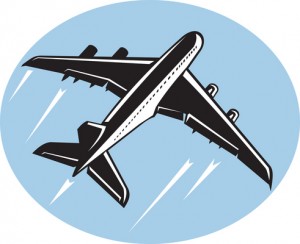 If you’re traveling with your laptop, you may need to carry a few accessories. These include adapters, surge protectors, converters, wireless Internet cards, Ethernet cables and a high-quality carrying case.
If you’re traveling with your laptop, you may need to carry a few accessories. These include adapters, surge protectors, converters, wireless Internet cards, Ethernet cables and a high-quality carrying case.
Power supply
If you’re traveling overseas, you need to consider possible international voltage differences and plug sizes and shapes. While the United State and Canada both use 110-volt electricity, the rest of the world runs on 220-240 volts.
Fortunately, most laptops can comfortably run on both voltages; however, check your computer label or owner’s manual to be on the safe side. If it runs on 110 only, you will need a converter.
You will also likely need an adapter so your plug can fit into the local outlets. Most countries have one or more adapters that are unique or that they share with a few close neighbors.
Surge protection is critical while traveling, particularly if you are traveling to a country where electricity is not reliable. You will need a surge protection electrical strip for whichever voltage you will be using, bearing in mind that surge protectors for 110 and 220-volt currents cannot be interchanged.
Internet connection
Most hotels offer either wireless or high-speed Internet. You may want to call ahead and find out what is available.
Many hotels will provide a Wi-Fi connection, which is helpful, since your laptop has its own built-in wireless network adapter that can search out the nearest wireless signal. Remember to ask for the hotel’s signal password at the front desk. You can also buy a wireless notebook card, if your laptop does not have an internal wireless network adapter. This would also be helpful for connecting to the Internet in WiFi hotspots in airports, libraries and coffee shops.
Some hotels will require that you plug into their Internet connection using an Ethernet cable. You should bring your own cable just in case one is not supplied to you by the hotel.
Extras
Your computer will more than likely take a few hits while you move around, so a sturdy padded carrying case could save you a lot of frustration and money.
You might also want to bring along a device onto which you can back up your work, just in case the hard drive crashes. An extra laptop battery might also come in handy, along with screen cleaners.
(Image Source: iCLIPART)

 Traveling is rarely guaranteed to go smoothly, but there are at least a few travel headaches that can be kept at bay thanks to technology. If you know how to make use of it in the proper manner, technology can increase your likelihood of having a positive experience on your next vacation.
Traveling is rarely guaranteed to go smoothly, but there are at least a few travel headaches that can be kept at bay thanks to technology. If you know how to make use of it in the proper manner, technology can increase your likelihood of having a positive experience on your next vacation.